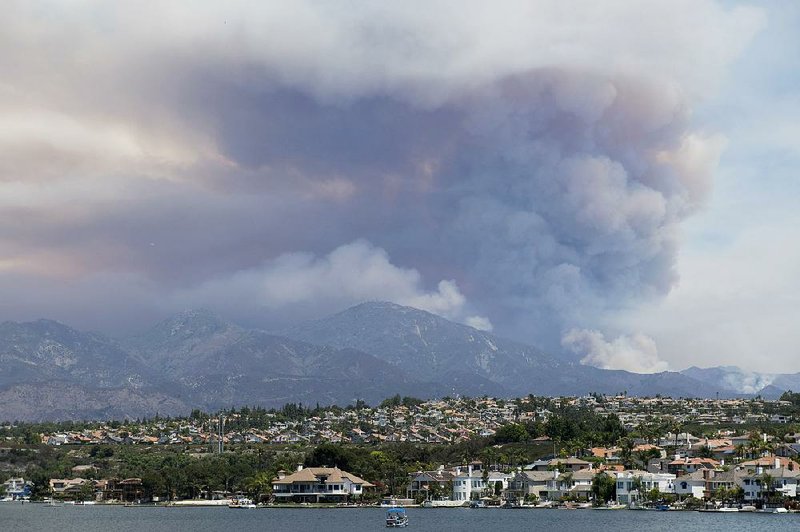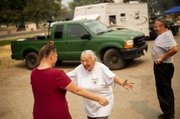LAKEPORT, Calif. -- The largest wildfire ever recorded in California needed just 11 days to blacken an area nearly the size of Los Angeles -- and it's only one of many enormous blazes that threaten to make this the worst fire season in state history.
Some 14,000 firefighters from as far away as Florida and even New Zealand are struggling to curb 18 fires in the midst of a sweltering summer that has seen wind-whipped flames carve their way through national forestland and rural areas, threaten urban areas and incinerate neighborhoods.
"For whatever reason, fires are burning much more intensely, much more quickly than they were before," said Mark Hartwig, president of the California Fire Chiefs Association.
California is seeing earlier, longer and more destructive wildfire seasons because of drought, warmer weather attributed to climate change and home construction deeper into the forests.
Some of the largest fires have broken out just within the past few weeks as the state has seen record-setting temperatures -- and the historically worst months of wildfire season are still to come.
In Southern California, a smoky forest fire raged Wednesday in mostly unoccupied land -- but firefighting crews were concerned the flames could race down hillsides toward foothill communities.
The blaze churning through the Cleveland National Forest south of Los Angeles was just 5 percent contained.
Flames that broke out Monday have blackened nearly 6½ square miles of dry brush and timber. Several cabins have burned and two rural canyons and some campgrounds have been evacuated.
In Northern California, the record-setting Mendocino Complex -- twin fires being fought as a single conflagration -- gained ground Wednesday but more slowly because its own smoke covered the area and lowered the temperature, according to the California Department of Forestry and Fire Protection.
The flames, which had burned 470 square miles, were raging in mostly remote areas but 116 homes were destroyed. Two firefighters have been injured.
Lake County Lt. Corey Paulich said Wednesday that the majority of residents along the shores of Clear Lake in Northern California were allowed to return home.
About 19,000 people were displaced during the peak of the blaze that continues to burn in Mendocino, Lake and Colusa counties
Paulich said about 1,500 people, mainly in his county's Spring Valley area, remain under evacuation orders.
He said fire officials are confident with the containment lines they have managed to cut around half the Mendocino Complex fire burning about 100 miles north of San Francisco.
Fire crews expect to gain control of the blaze in September, the state forestry and fire protection agency said.
The blaze that broke out July 27 initially spread quickly because of what officials said was a perfect combination of weather, rugged topography and abundant brush and timber turned to tinder by years of drought.
Resources also were thin at first because thousands of firefighters already were battling a blaze hundreds of miles north. That fire, which spread into the city of Redding, killed six people and destroyed more than 1,000 homes. The so-called Carr Fire was less than half contained.
Information for this article was contributed by Don Thompson, Lorin Eleni Gill and Olga Rodriguez of The Associated Press.
A Section on 08/09/2018


